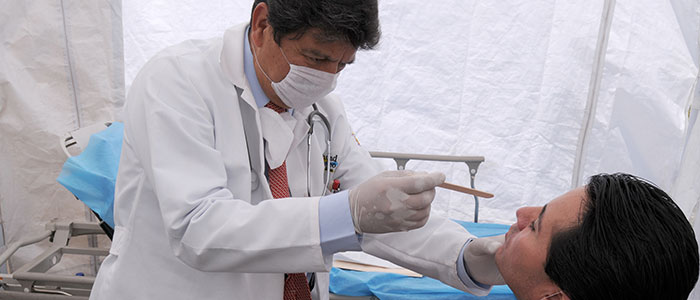Web_MexicanDoctor_shutterstock_29436109.jpg

Mexican doctor examining patient
In its review of Mexico’s health system for 2016, the think-tank urged the Central American country to tackle high rates of obesity, diabetes and heart disease as well as inefficiency and problems in the way it delivers care.
One “fundamental problem” highlighted by the report is that care is delivered through a number of disconnected social security institutes, meaning that every year around one third of individuals in Mexico are forced to change doctor just because they have changed their job.
“This disrupts the continuity of care – a basic necessity of high-quality health care, especially for people with chronic conditions,” said OECD secretary general Angel Gurría.
“It is also wasteful, given that the same individual needs to engage with multiple systems throughout his or her life or even for a single episode of care. As currently arranged, the Mexican healthcare system does not deliver value for money.”
Public spending on healthcare increased from 2.4% to 3.2% of GDP between 2003 and 2013, but the OECD noted that increased spending doesn’t always translate into better quality care.
It added that the share of the Mexican health budget spent on administration (10%) and individuals’ out-of-pocket spending on health (more than 40%) are the highest in the OECD, indicating that the system is not working as efficiently as it should.
The report did note that the share of the population exposed to unaffordable or impoverishing health care costs has fallen from 3.3% to 0.8% in the past decade. Some 50 million Mexicans who were previously at risk of unaffordable care bills now have access to health insurance.
Infant mortality rates, deaths from heart attacks or strokes and patient satisfaction rates have also improved as a result of better access to affordable services, and the OECD said that efforts to keep Mexicans healthy such as a sugar tax, food labelling and regulations for adverts targeting children are well designed and internationally innovative.
Nevertheless, overweight and obesity within the adult population increased from 62% in 2000 to 71% in 2012, and one in three children in Mexico are now overweight or obese.
More than 15% of adults have diabetes – double the OECD average- and deaths from heart disease have decreased only 1% since 1990, in contrast to a 48% reduction across other OECD countries. As a result the gap in life expectancy between Mexico and other OECD countries has widened from four years to six.
The OECD said that Mexico needs to build a more equitable, efficient and sustainable healthcare system to tackle these challenges.













